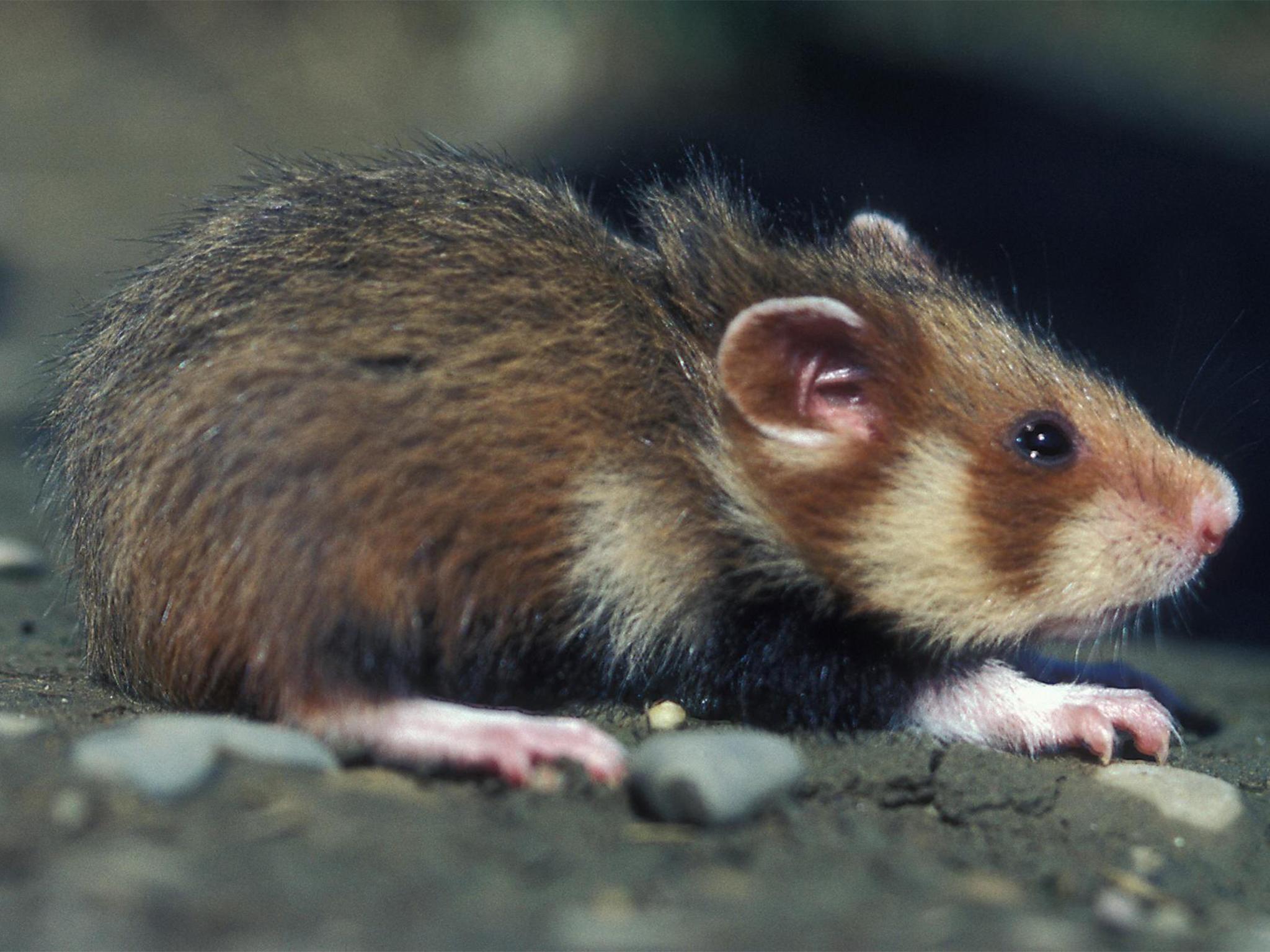Cannibal hamsters forced to eat their own babies due to 'collapsing' habitat, study finds
Intensive corn monocultures have destroyed the rodents' varied diets of grains, roots and insects and cause them to lack vitamin B3

Wild hamsters in France are eating their own babies alive because the new farming methods are causing their habitats to "collapse", researchers have found.
Scientists say farmland European hamsters, which are on the verge of extinction in Western Europe, are suffering from the rapid spread of intensive corn monocultures.
Previously, the rodents fed on a variety of grains, roots and insects but changes in agricultural techniques have transformed their habitats and made them feed nearly exclusively on corn. Some of them have been found to go hungry.
The results of the study by French researchers at the University of Strasbourg published in the British Royal Society journal Proceedings B, aimed to show how nutritional deficiencies caused by monocultures could affect their reproductive capacities in the wild.
The change in their habitats has left the hamsters lacking vitamins and particularly vitamin B3 - also known as niacin.
Researchers carried out lab experiments by comparing the behaviours of female hamsters, which were fed on wheat and corn-based diets with clover or worms and those which only had corn.
Four fifth of pups born of mothers eating a varied diet weaned compared with only five per cent of those, whose mothers were eating only corn - and the rest of them were eaten.
Researchers noted: “Females stored their pups with their hoards of maize before eating them. Pups were still alive at that time.”
The females, who fed only on corn, were also “running in circle in the cage, climbing and pounding their feeders when we entered in the room”.
They were described as having swollen and dark tongue, thick blood, hair deficiency and rash problems.
Snake charmers of Uttar Pradesh
Show all 11But when given vitamin B3, the hamsters, which had been previously fed only on corn, stopped eating their pups and regained a normal appearance.
“There’s clearly an imbalance,” said Gerard Baumgart, President of the Research Centre for Environmental Protection in Alsace, and an expert on the European hamster.
“Our hamster habitat is collapsing. Monoculture in agriculture is really bad for biodiversity. Now we need to take concrete action," he added.
The study also notes that in the the 18th and 19th centuries, corn-based diets led to the death of hundreds of thousands of people from pellagra, a complex disease partly caused by deficiencies in vitamin B3.
Subscribe to Independent Premium to bookmark this article
Want to bookmark your favourite articles and stories to read or reference later? Start your Independent Premium subscription today.

Join our commenting forum
Join thought-provoking conversations, follow other Independent readers and see their replies